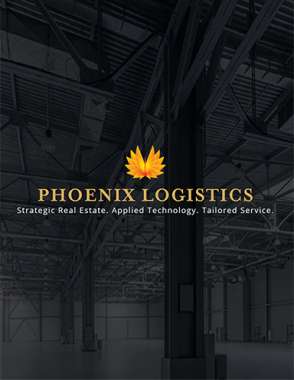The Great Decoupling and What It Means for Industrial Real Estate

The Great Decoupling refers to an exodus of production from China as businesses seek to improve supply chain resilience, these circumstances have been beneficial for a variety of other countries in Southeast Asia, including India, Vietnam, and Malaysia, among others.
“THE WORLD'S FACTORY”
Beginning slowly in the 1970s and picking up pace in the 1990s, businesses from numerous countries started outsourcing manufacturing to China to benefit from a ready and affordable workforce.
As this trend picked up speed, the country eventually gained the nickname “The World’s Factory.”
Consequently, for most of the late 20th and early 21st centuries, you could find “Made in China” stamped on virtually everything from consumer electronics to furniture to athletic wear.
Things change, however. For various reasons, China has begun to lose its grip on the global manufacturing community over the past few years. This shift away from China has directly impacted the U.S. industrial real estate market.
WHAT IS THE GREAT DECOUPLING?
Recent events have not been kind to the Chinese manufacturing sector. First, a U.S.-China trade war made sourcing from China prohibitively expensive for U.S. businesses across a variety of industries due to a substantial list of tariffs on Chinese goods and raw materials.
Then the COVID-19 pandemic shut down China’s manufacturing sector and ports and continued to do so off and on for almost two years. As a result, the cost benefits of manufacturing in China began to dwindle for U.S. businesses, so “The Great Decoupling” began.
The Great Decoupling refers to an exodus of production from China as businesses seek to improve supply chain resilience. These circumstances have been beneficial for a variety of other countries in Southeast Asia, including India, Vietnam, and Malaysia, among others.
But what does The Great Decoupling mean for the United States? As U.S. businesses decouple their supply chains from China, are they bringing those assets home?
THE GREAT DECOUPLING AND U.S. INDUSTRIAL REAL ESTATE
Business media and U.S. manufacturing stakeholders periodically claim that a manufacturing resurgence is on the horizon every year or two for the better part of the last 15 years.
However, while some businesses have certainly reshored their production in the United States before recent troubles, the numbers weren’t significant enough to demonstrate any real movement toward rebuilding the U.S. manufacturing sector.
However, things appear to be looking up for the U.S. reshoring movement. In 2021, interest in reshoring was clearly on its way up, given that 92% of executives expressed positive sentiments toward reshoring in a Kearney report, and 83% of North American manufacturers reported they were likely or extremely likely to reshore production in a Thomasnet survey. Now, those sentiments appear to be coming to fruition in 2022. For example:
- The Reshoring Initiative projects that 350,000 manufacturing jobs will be reshored in 2022, up from 260,000 in 2021.
- The Inflation Reduction Act has spurred notable action in clean manufacturing sectors such as solar, electric vehicles, clean energy, batteries, electronics, semiconductors, and more.
- Construction of new manufacturing facilities in the U.S. has risen 116% year-over-year, according to Bloomberg and Dodge Construction Network.
In commercial real estate, demand for viable manufacturing properties has increasingly contributed to industrial real estate demand this year. This demand can probably be attributed to a mixture of domestic expansion and reshoring efforts as companies attempt to stabilize their supply chains.
While the impact of the pandemic itself on global supply chains has begun to wane - except in China, where the country’s zero-tolerance policy for COVID-19 means that closures still happen - most of the primary drivers for reshoring remain.
Port delays, container shortages, severe weather events, and transportation capacity issues will continue for the foreseeable future. As such, interest in relocating production to the U.S. will also continue to rise.
The real estate sector would do well to recognize the potential of this trend. Developers will want to ensure new factories are ready to handle heavy automation, smart technologies, and sustainable solutions, which will all be key to attracting the next generation of manufacturing tenants.
ABOUT PHOENIX INVESTORS
Founded by Frank P. Crivello in 1994, Phoenix Investors and its affiliates (collectively “Phoenix”) are a leader in the acquisition, development, renovation, and repositioning of industrial facilities throughout the United States. Utilizing a disciplined investment approach and successful partnerships with institutional capital sources, corporations, and public stakeholders, Phoenix has developed a proven track record of generating superior risk-adjusted returns, while providing cost-efficient lease rates for its growing portfolio of national tenants. Its efforts inspire and drive the transformation and reinvigoration of the economic engines in the communities it serves. Phoenix continues to be defined by thoughtful relationships, sophisticated investment tools, cost-efficient solutions, and a reputation for success.
More Content from Phoenix Logistics
Article Topics
Phoenix Logistics News & Resources
4 Best Practices for Online Order Fulfillment In 2023 Is Industrial Real Estate Recession-Proof? 9 Tips for Offsetting Rising Parcel Rates Tips for Retaining Your Peak Season Temp Labor The Great Decoupling and What It Means for Industrial Real Estate How Does the Inflation Reduction Act Impact Industrial Real Estate? Not in My Backyard: Warehouse Edition More Phoenix LogisticsLatest in Transportation
Baltimore Opens 45-Foot Deep Channel Following Bridge Collapse El Paso Border Delays Cost Juarez $32 Million Per Day in Economic Losses Ranking the World’s 10 Biggest Supply Chains The Top 10 Risks Facing Supply Chain Professionals Walmart’s Latest Service: Ultra Late-Night Delivery City of Baltimore Files Lawsuit to Recoup Money for Collapsed Bridge The Era of Self-Driving Tractor-Trailers Set to Begin More Transportation













